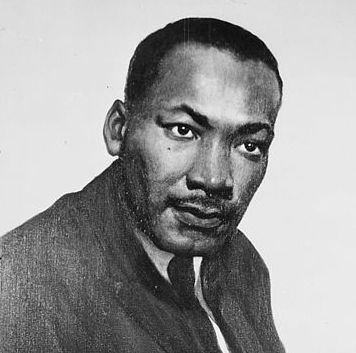Try It
Much like other groups in the world, African Americans were also fighting for civil rights in the United States during the twentieth century. In 1963, Dr. Martin Luther King, Jr., authored a letter to a group of Baptist ministers in the South. The ministers argued that the protest activities being coordinated by Dr. King were causing more trouble than they were worth. Read the excerpt from the letter below.

Dr. Martin Luther King, Jr. advocated for civil rights in the U.S.
My Dear Fellow Clergymen:
While confined here in the Birmingham city jail, I came across your recent statement calling my present activities "unwise and untimely."
… I am in Birmingham because injustice is here. Just as the prophets of the eighth century B.C. left their villages and carried their "thus saith the Lord" far beyond the boundaries of their home towns, and just as the Apostle Paul left his village of Tarsus and carried the gospel of Jesus Christ to the far corners of the Greco Roman world, so am I compelled to carry the gospel of freedom beyond my own home town.
We have waited for more than 340 years for our constitutional and God given rights. The nations of Asia and Africa are moving with jet-like speed toward gaining political independence, but we still creep at horse and buggy pace toward gaining a cup of coffee at a lunch counter. Perhaps it is easy for those who have never felt the stinging darts of segregation to say, "Wait."
Of course, there is nothing new about this kind of civil disobedience … It was practiced superbly by the early Christians, who were willing to face hungry lions and the excruciating pain of chopping blocks rather than submit to certain unjust laws of the Roman Empire … In our own nation, the Boston Tea Party represented a massive act of civil disobedience.
— Dr. Martin Luther King, Jr., Letter from a Birmingham Jail, April 16, 1963
Source: African Studies Center, University of Pennsylvania


